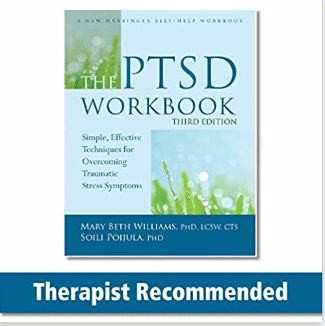Can you get PTSD From Spousal Abuse? The Shocking Truth
Yes, it is indeed possible to develop Post-Traumatic Stress Disorder (PTSD) from spousal abuse. Spousal abuse, also known as domestic violence or intimate partner violence, can have profound psychological impacts, including the development of PTSD.
Spousal abuse, a traumatic event, can lead to Post-Traumatic Stress Disorder (PTSD) due to the intense fear, helplessness, or horror it instills. Victims of such abuse might experience recurrent distressing memories, nightmares, or flashbacks of the abuse, causing severe emotional distress and physical reactions.
Over time, this repeated psychological stress can manifest as PTSD, with victims avoiding reminders of the trauma, experiencing negative changes in mood or thinking, and heightened reactivity, a state of constant alertness for danger.
Physical Abuse:
- Unexplained bruises, cuts, or injuries
- Frequent accidents or injuries
- Clothing that's inappropriate for the weather, possibly worn to cover up injuries
- Emotional and Psychological Abuse:
- Decreased self-esteem or confidence
- Signs of depression, anxiety, or PTSD
- Social withdrawal or isolation
- Fearfulness or constant worry about pleasing their partner
- Changes in sleep or eating patterns
Behavioral Signs:
- The partner exhibits excessively controlling behavior
- The partner exhibits extreme jealousy or possessiveness
- Frequent arguments or tension between the partners
- The partner threatens violence or harm
- The victim seems afraid of their partner
Financial Abuse:
- The victim has limited access to money or financial resources
- The partner controls their spending or financial decisions
- The victim is not allowed to work or is sabotaged at work
Psychotherapy:
- Cognitive behavioral therapy (CBT)
- Prolonged exposure therapy (PE)
- Cognitive processing therapy (CPT)
Pharmacotherapy:
- Selective serotonin reuptake inhibitors (SSRIs)
- Serotonin-norepinephrine reuptake inhibitors
- Anti-Anxiety medications
- Prazosin
- Support groups
- Mindfulness and relaxation techniques
Post-Traumatic Stress Disorder (PTSD) is a severe mental health condition that can occur after experiencing a traumatic event. Many people think of PTSD as something that only happens to those who have served in the military or experienced a natural disaster, but it's also caused by spousal abuse.
In this article, we'll discuss how domestic violence can cause victims to develop PTSD and how to seek help if you or a family member is a victim.
We'll also discuss ways to cope with the effects of PTSD after experiencing spousal abuse.
Does Domestic Violence Cause Post Traumatic Stress Disorder?

Domestic violence is any form of physical, sexual, emotional, or financial abuse that occurs between two people in an intimate relationship.[1]
Unfortunately, domestic violence can have a devastating impact on victims, leading to physical injuries, emotional trauma, and even Post-Traumatic Stress Disorder (PTSD). [2]
PTSD is an anxiety disorder that can occur after someone has experienced or witnessed a traumatic event. According to the American Psychiatric Association's Diagnostic and Statistical Manual of Mental Disorders (DSM-5), it's estimated that one in eleven Americans will be diagnosed with PTSD as a result of domestic violence. [3]
You can take this quick PTSD test to confirm if you have PTSD.
How Does Spousal Abuse Cause PTSD?

Spousal abuse can take many forms, including verbal insults, physical intimate partner violence, sexual assault, and financial exploitation. All of these can have a traumatizing effect on the victim. For many domestic violence survivors, the traumatic events may lead to the development of PTSD. [4]
Those who have complex PTSD may experience flashbacks, nightmares, extreme feelings of guilt or shame, panic attacks, and feelings of detachment from their loved ones. [5]
Furthermore, victims of an abusive relationship often suffer mental illness and psychological injuries, which can lead to severe depression, sudden inexplicable anger, and other mental health problems. [6]
It’s critical to recognize that PTSD is a serious condition and should be treated as such. With proper support and treatment, those affected by substance abuse disorders or by PTSD can begin their healing process and move forward with their lives.

What Are The Symptoms of PTSD from Spousal Abuse?
The symptoms of post-traumatic stress disorder (PTSD) that may result from spousal or child abuse can vary depending on the severity of the abuse and the period it started. [5]
Generally, PTSD symptoms include trouble sleeping, emotional outbursts, feeling numb, suicidal thoughts, flashbacks, and avoiding reminders of the traumatic experience. [5]
We have provided brief explanations to help people understand the specific symptoms they are experiencing.
- Avoidance – You may try to avoid talking about domestic violence or any reminders that can trigger the traumatic memories. [5]
- Flashbacks – Memories of the event can be triggered by certain sights, sounds, smells, or thoughts. These memories can be so vivid that you feel like you are reliving the trauma again. [5]
- Intrusive thoughts – You may have intrusive thoughts about the trauma or the abuser, which can cause much distress. [5]
- Anger management issues – You may have intense feelings of extreme anxiety and fear, which can be debilitating and interfere with your daily activities.
- Sleep problems – You may have difficulty falling or staying asleep and experience nightmares or night terrors related to the abuse.
- Emotional numbing – You may feel detached from loved ones, unable to experience joy, or feeling emotionally numb.
What Treatments Are Available for PTSD After Spousal Abuse?

Domestic abuse victims can find several mental health resources online.
For example, an Online therapist specializing in treating mental illnesses can help you heal since they have the knowledge and experience.
You will receive the following treatment plan from a board-certified psychiatrist:
- Cognitive Behavioral Therapy (CBT): CBT helps you identify and challenge unhelpful thoughts and beliefs that lead to symptoms such as avoidance. As part of CBT, you can learn relaxation techniques and gradually expose yourself to distressing memories and situations. [7]
- Eye Movement Desensitization and Reprocessing (EMDR) and Prolonged Exposure Therapy (PE): EMDR involves identifying areas of distress in your life and then using eye movement or tapping to desensitize them. In PE, you practice facing feared situations or memories without avoidance or distress and talk about the traumatic event in a safe haven. [8]
- Medications: The psychiatrist may prescribe antidepressants and anti-anxiety medications for PTSD. However, medications are not a cure-all, and they should always be used in combination with therapy. [5]

National Domestic Violence Hotline
If you're a victim or witness of domestic violence, you can call the National Domestic Violence Hotline, and they'll listen and provide confidential help anytime.
If you've been affected by spousal or intimate partner abuse, you should seek help as soon as possible. You can be provided with a mental health professional who can help you work through the symptoms of PTSD, develop healthier coping skills, and live a more fulfilling life.
Conclusion
PTSD is a severe consequence of domestic violence. Victims of spousal abuse often suffer both physical abuse and mental trauma, with some cases leading to PTSD.
Victims of domestic violence need to seek help from trained mental health professionals that provide effective treatments for PTSD.
With the right kind of support and treatment, those with PTSD after spousal abuse can find healing and begin to move forward in their lives.
FAQ
Can you get PTSD from emotional abuse?
The short answer is yes - emotional abuse can lead to PTSD.
Emotional abuse is a form of psychological abuse that can cause significant distress and anxiety.
It involves controlling behavior, manipulation, belittling, and criticizing. Over time, the effects of this kind of trauma can be severe and long-lasting
How long does PTSD from abuse last?
PTSD is an emotional disorder that can arise in individuals who have suffered from trauma. It can be caused by several different types of abuse, including physical, sexual, and emotional abuse. Victims of intimate partner violence can experience PTSD symptoms for months or even years after the abuse has ended.
References
- What Is Domestic Abuse?
- The Connection Between Domestic Violence and PTSD
- What is Posttraumatic Stress Disorder (PTSD)?
- Domestic Violence
- Post-traumatic stress disorder (PTSD) - Symptoms and causes
- Abuse, trauma, and mental health
- What is Cognitive Behavioral Therapy?
- EMDR vs Prolonged Exposure Therapy






